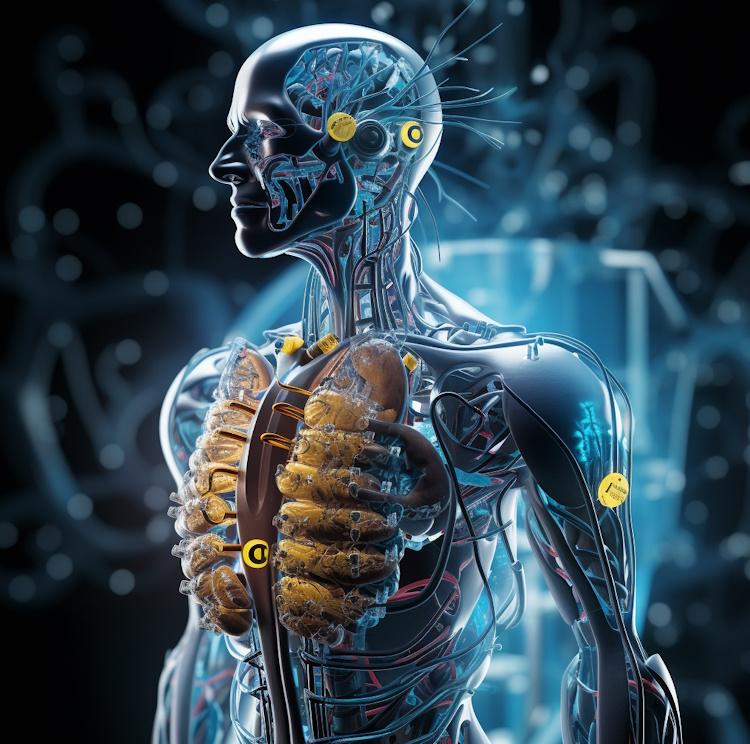The Truth About L-Carnitine: How Science Proves Its Effectiveness for Energy and Fat Loss
Mastering L-Carnitine: Explore the Cutting-Edge Science that Backs its Health Benefits

Overall, the science behind L-carnitine suggests that it plays a crucial role in energy metabolism, particularly in the heart and skeletal muscle, and may have potential benefits for weight loss, heart health, and overall well-being.
Are you always tired and wondering how to boost your energy naturally? Maybe you’ve heard of L-Carnitine but aren’t quite sure what it does in your body. You’re not alone! Many people look for safe and effective ways to improve their stamina, shed some pounds, or just feel more vibrant throughout the day.
Here’s an interesting fact: L-Carnitine isn’t just another dietary supplement; it’s a powerhouse nutrient that carries fatty acids into our cells to turn them into energy.
That means whether you’re trying to excel in sports or make it through a busy workday, this amino acid could play a critical role in helping your muscles stay fueled and ready to go.
In this article, we’ll dive into the science behind L-Carnitine and uncover how it might help tackle fatigue while supporting overall well-being. Keep reading – there’s much more to learn about this amazing nutrient!
Key Takeaways
- L–Carnitine is an amino acid that helps move fats into cells to be used for energy, which can boost stamina and help with fat loss.
- It comes in different forms like L-carnitine tartrate for muscles, acetyl-L-carnitine for the brain, and propionyl-L-carnitine for heart health.
- Taking L-Carnitine might help your heart by lowering damage from poor blood flow. It also may help athletes work out better and longer.
- People with type 2 diabetes or depression might feel better using L-Carnitine because it could make their body’s sugar use more efficient and improve mood.
- Always talk to a doctor before taking L-Carnitine, especially if you have kidney or liver disease or are going through cancer treatment.
Understanding L-Carnitine
L-Carnitine is a naturally occurring compound in the body that plays a key role in energy production. It helps transport fatty acids into the mitochondria, where they are broken down to produce energy.
This process makes L-Carnitine essential for overall health and well-being. Different types of L-Carnitine exist, each with its own unique functions and benefits.
What is L-Carnitine?

L-carnitine is primarily synthesized in the liver and transported via the bloodstream to cardiac and skeletal muscle, which rely on L-carnitine for fatty acid metabolism.
L-Carnitine is a chemical found in your brain, liver, and kidneys. Your body makes it to turn fat into energy. Think of it like a tiny truck that carries fat into the parts of your cells called mitochondria.
There, the fat gets turned into power for your body. Important muscles like the ones in your heart use this power.
Your body can make L-Carnitine on its own if you are healthy. It grabs pieces from two amino acids (lysine and methionine) to build it right inside you. But sometimes people take extra L-carnitine as a supplement because they need more for their muscles or their heart health.
This extra bit can help them feel more energetic or may support their bodies when they have certain health issues.
Types of L-Carnitine
L-Carnitine comes in various forms, namely L-carnitine tartrate, acetyl-L-carnitine (ALCAR), and propionyl-L-carnitine. Each type has specific benefits and functions. For instance, L-carnitine tartrate is known for its role in exercise performance and muscle recovery.
On the other hand, acetyl-L-carnitine is recognized for its potential support for brain function and cognitive health. Propionyl-L-carnitine may be beneficial for heart health by improving blood flow and reducing symptoms of peripheral vascular disease.
Understanding these different types can help individuals choose the most suitable form based on their specific health goals or requirements.
Role in the body
L-Carnitine is essential for the body’s energy production. It mainly works in the heart and skeletal muscles, helping transport long-chain fatty acids into the mitochondria to be converted into energy.
This process supports overall energy metabolism and is crucial for maintaining a healthy heart and muscle function. Studies have shown its potential benefits in reducing myocardial injury after ischemia, enhancing lipid metabolism, and increasing oxygen consumption, indicating its significant role in supporting bodily functions.
Benefits for weight loss

More research is needed, but L-carnitine may help increase weight loss and fat burning, supporting its potential use for improving body composition.
L-Carnitine’s role in the body relates to its potential benefits for weight loss. Research suggests that L-Carnitine may help increase fat burning and support weight loss by enhancing the body’s ability to convert fat into energy.
This is particularly important as it can aid in improving body composition, making it a promising supplement for individuals looking to manage their weight more effectively.
Studies indicate that L-Carnitine supports energy metabolism, especially related to the transport and conversion of fatty acids into usable energy, potentially making it a valuable tool for those striving towards weight management goals.
 Experience the world’s first and only 100% safe and natural L-Carnitine formula that, when combined with your morning coffee, enhances the speed and efficiency of your metabolism. Join thousands who have electrified their metabolism, torched fat, enjoyed all-day energy, and improved health effortlessly. Take advantage of this limited-time offer to get special discounts on 90 and 180-day packages. Backed by a 60-day money-back guarantee, take your risk-free path to a healthier, more energetic you. Don’t miss out on this exclusive opportunity – try it today! Advertisement
Experience the world’s first and only 100% safe and natural L-Carnitine formula that, when combined with your morning coffee, enhances the speed and efficiency of your metabolism. Join thousands who have electrified their metabolism, torched fat, enjoyed all-day energy, and improved health effortlessly. Take advantage of this limited-time offer to get special discounts on 90 and 180-day packages. Backed by a 60-day money-back guarantee, take your risk-free path to a healthier, more energetic you. Don’t miss out on this exclusive opportunity – try it today! Advertisement
Effects on brain function
L-Carnitine, a chemical naturally produced in the body, also plays an essential role in brain function by aiding in the process of turning fat into energy. It is made in the human brain and assists in transporting long-chain fatty acids into the mitochondrial matrix for energy conversion.
This function is crucial as it supports the energy needs of brain cells, potentially contributing to overall cognitive health. While further research is needed to fully understand its impact on brain function, initial findings indicate that L-Carnitine may play a significant role in supporting mental clarity and focus.
Moving on to potential health benefits of L-Carnitine..
Potential Health Benefits of L-Carnitine
L-Carnitine has been shown to have potential health benefits for heart health, exercise performance, type 2 diabetes, depression, cancer treatment, and kidney or liver disease.
Heart health
L-Carnitine has shown potential benefits for heart health. Research indicates that L-carnitine can help reduce damage to the heart muscle after a lack of blood flow, which may occur during a heart attack or other cardiovascular events.
Additionally, studies have suggested that L-carnitine supplements could decrease lactate levels and heart rate while supporting lipid metabolism, oxygen consumption, and plasma levels of L-carnitine.
These effects may contribute to improved overall cardiac health.
Exercise performance
L-Carnitine may help to improve exercise performance. Studies have shown that L-Carnitine supplements can increase oxygen consumption and lipid metabolism during physical activity, potentially enhancing endurance and reducing fatigue.
This amino acid plays a crucial role in energy production by transporting fatty acids into the mitochondria for conversion into fuel, which can benefit individuals looking to optimize their exercise capacity.
Type 2 diabetes

More research is needed, but L-carnitine may help increase weight loss and fat burning, supporting its potential use for improving body composition.
Moving on from its impact on exercise performance, L-Carnitine has also shown potential benefits in managing type 2 diabetes. Research suggests that L-Carnitine supplementation may help improve glucose utilization and insulin sensitivity in individuals with type 2 diabetes.
L-Carnitine could support better blood sugar control and overall metabolic health by enhancing the body’s ability to use glucose for energy. While more studies are needed, this aspect of L-Carnitine showcases its diverse potential impacts on various aspects of human health.
Depression
L-Carnitine may also have potential benefits for depression. Studies suggest that L-carnitine plays a role in brain function and mood regulation, making it an area of interest for researchers studying mental health.
Since L-carnitine is involved in energy production within the brain, some studies have explored its potential to alleviate symptoms of depression. While more research is needed to fully understand the impact of L-carnitine on depression, initial findings show promising connections between this amino acid and mental well-being.
L-Carnitine could possibly provide a natural and supportive approach for individuals dealing with depression. Research into the relationship between L-carnitine levels and depressive symptoms continues to shed light on the possible benefits of this compound for mental health, offering hope for those seeking alternative or complementary strategies to support their emotional well-being without relying solely on traditional pharmaceutical interventions.
Cancer treatment
L-Carnitine may have potential benefits in cancer treatment. Some studies suggest that L-Carnitine could help reduce chemotherapy-related fatigue and improve overall quality of life for cancer patients.
Additionally, it might also play a role in preventing some of the toxic side effects of chemotherapy and radiation therapy. However, more research is needed to fully understand the specific ways L-Carnitine can support cancer treatment.
The science behind L-Carnitine’s potential role in cancer treatment indicates promising avenues for further exploration. However, consulting with healthcare professionals before incorporating L-Carnitine supplementation into a cancer treatment plan is important, as individual circumstances may vary widely.
Kidney or liver disease

In people with good health, the liver and kidneys produce and store enough L-carnitine for their needs, but supplementation may be beneficial for certain individuals.
In people with kidney or liver disease, the production and storage of L-carnitine in the body may be reduced. This can lead to lower levels of L-carnitine, which may affect its crucial role in energy metabolism.
Additionally, individuals with these conditions should use caution when considering L-carnitine supplementation due to potential risks and side effects. It is important for those with kidney or liver disease to consult a healthcare professional before using L-carnitine supplements.
Furthermore, studies indicate that supplemental L-carnitine might benefit individuals with certain types of kidney or liver diseases by potentially improving energy metabolism; however, more research is needed to fully understand its impact on these specific health conditions.
Recommended Dosage of L-Carnitine
The recommended dosage of L-Carnitine varies depending on individual health and fitness goals. A typical dosage for adults with good overall health is 500-2,000 mg daily. Athletes may benefit from higher doses of 2-6 grams per day, while those looking to support weight loss can start with 1-3 grams daily.
For adults with good overall health
In healthy adults, the body usually produces enough L-carnitine for its needs. It’s primarily made in the liver and kidneys, helping turn fat into energy. So, most healthy adults may not need to take L-carnitine supplements since their bodies naturally provide sufficient amounts.
However, if you’re considering taking L-carnitine supplements despite good health, it’s important to consult a healthcare professional first to determine whether supplementation is necessary or beneficial.
For athletes
Athletes might benefit from L-carnitine supplementation as it can enhance exercise performance and increase lipid metabolism, helping in energy production during high-intensity workouts.
Studies have shown that L-carnitine supplements reduce heart rate and lactate levels while increasing oxygen consumption, which may contribute to improved athletic endurance. Furthermore, L-carnitine is essential for the transport of long-chain fatty acids into the mitochondria for energy conversion, a process crucial for sustaining physical activity.
These potential benefits make L-carnitine a possible consideration for athletes looking to optimize their performance and recovery.
“Unleash boundless energy and transform your well-being with the secret power of L-Carnitine! Discover how this nutrient superhero can boost your energy levels, support weight loss, enhance brain function, and contribute to overall vitality. Explore the science-backed benefits and learn how incorporating L-Carnitine into your routine might be the key to a healthier, more energized lifestyle.”
For weight loss
L-carnitine has shown potential benefits for weight loss by increasing the body’s ability to burn fat. It plays a crucial role in energy metabolism, particularly in the skeletal muscle, aiding in the transportation of long-chain fatty acids into the mitochondria for conversion into energy.
This process may support improved body composition and increased fat burning, offering promising implications for individuals looking to manage their weight effectively.
Conclusion

Studies show that L-carnitine can reduce myocardial injury after ischemia, indicating its potential benefits for heart health.
In conclusion, understanding L-carnitine’s role in the body and its potential health benefits can pave the way for practical improvements. Its impact on heart health, exercise performance, and weight loss showcases its efficiency.
Implementing recommended dosages can significantly improve overall well-being for many individuals. You may want to look into additional resources to better understand this topic.
Remember, with the right knowledge and application, embracing L-carnitine could be your path to better vitality and wellness.
FAQs
1. What does L-Carnitine do in your body?
L-Carnitine works in our bodies by moving long-chain fatty acids into the mitochondria to make energy and help with metabolism.
2. Why might someone take an L-Carnitine supplement?
People might take an L-Carnitine supplement to boost their energy production, for better fat metabolism, or for its possible benefits on muscle function and workout recovery.
3. Can you find L-Carnitine naturally in foods?
Yes, you can get L-Carnitine from some foods like meat and fish; it’s also made naturally in our bodies through a process called synthesis.
4. How much L-Carnitine should people take?
The right amount of L-Carnitine to take depends on each person’s needs; it’s best to talk with a doctor about the proper dosage to match your health goals.
5. Are there any side effects from taking too much L-Carnitine?
Taking too much L-Carnitine can lead to side effects such as stomach upset or nausea; always follow professional advice on how much is safe to use.
Source URLs
https://ods.od.nih.gov/factsheets/Carnitine-HealthProfessional/
https://ods.od.nih.gov/News/Carnitine_Conference_Summary.aspx
https://lpi.oregonstate.edu/mic/dietary-factors/L-carnitine
https://www.healthline.com/nutrition/l-carnitine
https://www.webmd.com/vitamins/ai/ingredientmono-1026/l-carnitine
https://www.medicalnewstoday.com/articles/l-carnitine
https://jissn.biomedcentral.com/articles/10.1186/s12970-020-00377-2



















